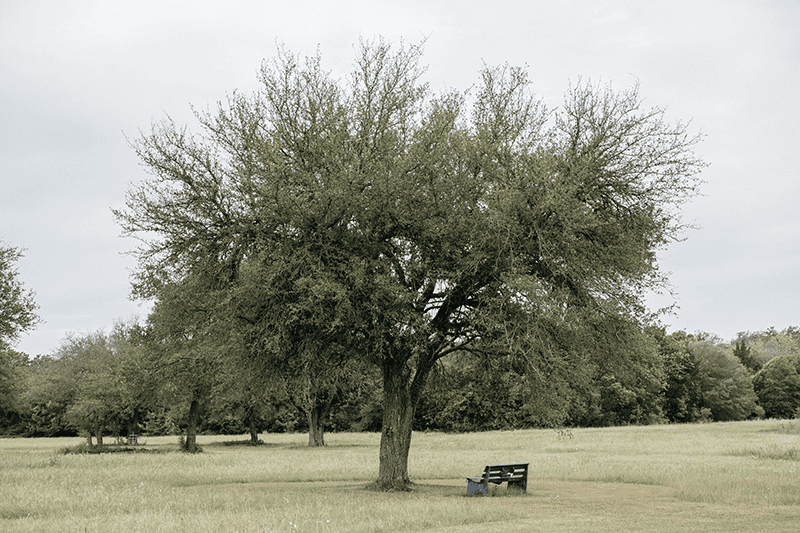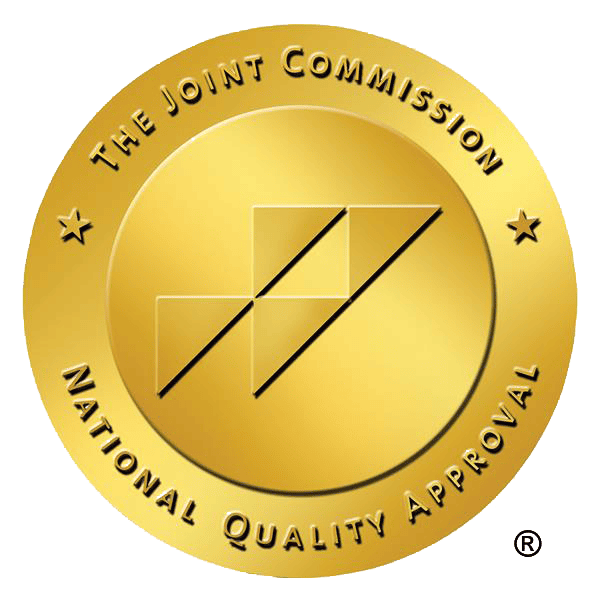Cocaine is a potent central nervous system stimulant with significant potential for misuse and dependence. Derived from the coca plant, it has been used for centuries. However, cocaine misuse can lead to severe physical and psychological problems, including the development of addiction. Breaking free from cocaine addiction often requires specialized help. The Prairie Recovery Center provides comprehensive inpatient cocaine addiction treatment in Austin, TX. We offer several distinct levels of clinical care, including medical detox and residential treatment.
Understanding how to recover from cocaine addiction is the first step toward reclaiming control over your life and health. Our treatment for cocaine addiction in Texas can give you the edge you need to achieve lasting wellness.
The Scope of Cocaine Use in the US
Cocaine use continues to be a significant public health issue in the United States. The drug’s highly addictive nature and its wide availability have led to its abuse by individuals across all demographics. Recent studies show that millions of Americans have experimented with cocaine. Furthermore, a substantial number of these individuals have developed a dependency. This alarming trend underscores the need for effective cocaine addiction treatment programs, particularly in areas like Austin, where the drug’s presence remains concerning.
Understanding the scope of cocaine use can help communities and healthcare providers address the issue more effectively. In cities like Austin, efforts to combat cocaine addiction have intensified, leading to the development of specialized programs designed to meet the needs of those struggling with this addiction. With the right cocaine abuse treatment and support, recovery is not only possible but achievable.

Signs of Cocaine Addiction
When cocaine is consumed, it increases dopamine levels within the brain. Dopamine is a neurotransmitter associated with pleasure, mood, and movement in the brain circuits. This surge of dopamine produces an intense feeling of euphoria, which can make a user want to repeat the experience.
Over time, cocaine changes the brain’s reward system and structures. Ultimately, this leads to increased tolerance, which means higher doses are needed to achieve the same effect. This can easily lead to addiction.
Cocaine addiction is characterized by a compulsive need to use the drug despite the harmful consequences. Recognizing the signs of cocaine addiction is vital for early intervention and treatment. These signs include:
- Increased tolerance: Needing larger amounts of cocaine to achieve the same effects.
- Compulsive use: An uncontrollable urge to use cocaine, often at the expense of other responsibilities or relationships.
- Neglecting Responsibilities: Ignoring work, school, or family obligations due to drug use.
- Financial problems: Spending excessive amounts of money on cocaine, often leads to financial instability.
- Changes in behavior: Sudden mood swings, increased irritability, or erratic behavior.
- Social withdrawal: Isolating from friends and family, often to hide drug use.
- Physical symptoms: Frequent nosebleeds, nasal congestion, weight loss, insomnia, or hyperactivity.
- Paranoia and anxiety: Experiencing heightened anxiety, paranoia, or even hallucinations.
- Neglect of personal hygiene: A decline in personal care and hygiene as the addiction worsens.
- Failed attempts to quit: Multiple unsuccessful attempts to stop using cocaine despite the desire to quit.
- Legal issues: Engaging in illegal activities to obtain the drug or facing legal consequences due to drug-related behavior.
- Health deterioration: Noticeable decline in physical or mental health, such as heart problems, respiratory issues, or mental health disorders.
Cocaine addiction often leads to severe health complications, such as heart problems, respiratory issues, and mental health disorders. Individuals may also experience intense cravings, withdrawal symptoms, and an increasing tolerance to the drug, which forces them to use higher doses to achieve the same effects. If someone exhibits these symptoms, it’s crucial to seek treatment for cocaine addiction to prevent further harm.
Why is Cocaine So Dangerous?
Cocaine is dangerous not only because of its addictive properties but also due to the severe physical and psychological effects it has on users. The drug works by stimulating the central nervous system, leading to a short-lived euphoria followed by a dramatic crash. This cycle can quickly lead to addiction as users seek to avoid the intense lows by continuing to use the drug.
Long-term use of cocaine can cause serious health issues, including heart attacks, strokes, and severe respiratory problems. It can also lead to significant mental health challenges, such as anxiety, paranoia, and even psychosis. The damage to personal relationships, finances, and professional life can be just as devastating. inpatient cocaine addiction treatment addresses these dangers by providing comprehensive care that focuses on both the physical and psychological aspects of addiction.
Cocaine Addiction Treatment in Austin, TX
The journey to recovery from cocaine addiction can be challenging. However, it is possible to recover and maintain sobriety with appropriate support and treatment.
Those affected by cocaine addiction need to know how to recover from cocaine addiction as soon as possible. Below are some of the most effective cocaine abuse treatment options available at our residential cocaine addiction treatment program in Texas:
- Behavioral Therapies: The most common therapy in treatment for cocaine use. Approaches like Cognitive-Behavioral Therapy (CBT) can help patients recognize, avoid, and cope with situations that might urge them to use cocaine.
- Residential/Inpatient Treatment: For severe cases of addiction, individuals might benefit from a controlled environment where they can focus solely on their recovery.
- Outpatient Programs: These are suited for individuals with a milder form of addiction or those who have already undergone an inpatient program. It allows individuals to maintain their daily routines while attending scheduled treatment sessions.
- Medications: While no FDA-approved drug specifically treats cocaine addiction, some medications might help reduce cravings or treat co-occurring disorders.
- 12-Step Programs and Support Groups: Joining groups like Narcotics Anonymous can provide peer support, which is crucial in maintaining sobriety.
- Dual Diagnosis Treatment: Many individuals with cocaine addiction also have co-occurring mental health disorders. Addressing both simultaneously can improve the chances of long-term recovery.
- Aftercare and Relapse Prevention: Continued counseling, support groups, and therapy are popular treatments for cocaine use They help individuals maintain their sobriety and deal with potential triggers.

The Prairie Recovery Center’s Cocaine Rehab in Austin
Our cocaine addiction treatment in Austin, TX combines expert medical care with intensive therapy and holistic modalities. We address the root cause of cocaine addiction while equipping our clients with the necessary tools to maintain sobriety.
Some of the treatments for cocaine use we provide include:
- Personalized Treatment Plans: Every journey to addiction differs, and so should every path to recovery. At The Prairie Recovery Center, our professionals evaluate each individual’s needs to develop a unique treatment plan.
- Professional Counseling: A robust support system is critical to cocaine addiction recovery. Our experienced therapists provide one-on-one and group counseling sessions, guiding individuals through their recovery journey.
- Holistic Therapies: Recovery doesn’t just address the physical aspect of addiction. We also focus on our clients’ emotional and mental well-being, using techniques like yoga, meditation, and art therapy.
- Aftercare and Support: Recovery doesn’t end when individuals leave the center. We provide continuous support and resources to help clients maintain sobriety in the long term.

The Levels of Clinical Care We Provide
Our residential cocaine addiction treatment program in Texas provides two distinct levels of clinical care—medically monitored detox and residential treatment.
- Detoxification: The first step in breaking free from cocaine often involves detox. We offer a medically supervised detox program, ensuring safety and comfort during this crucial phase. Clients undergo cocaine withdrawal under the supervision of a team of licensed medical professionals. Once a client has been physically stabilized, they transition into the next appropriate level of care.
- Residential Treatment: During residential rehab, residents are removed from everyday distractions and triggers, allowing them to focus solely on their recovery journey. Within a comforting and therapeutic setting, they receive round-the-clock care and support from our team of professionals, including doctors, therapists, counselors, and support staff.
In most cases, cocaine detox in Austin lasts between 3 and 7 days. The duration of residential rehab varies depending on the individual’s needs but often spans between 30 to 90 days. More extended stays are recommended for individuals with severe cocaine addictions or co-occurring mental health disorders.




